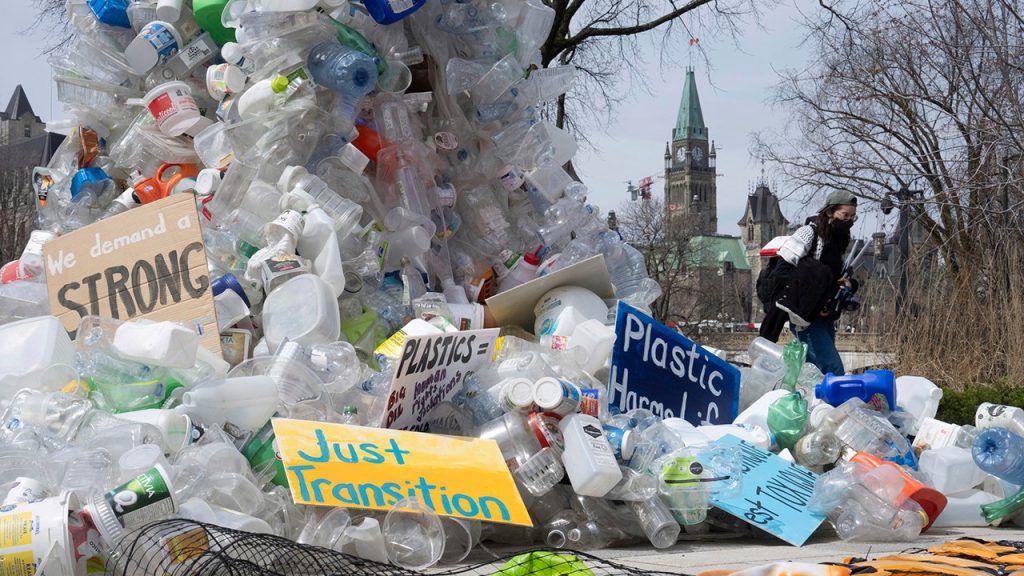The fourth Intergovernmental Negotiating Committee on Plastic Pollution session took place in Ottawa, where nations made significant progress towards crafting the first legally binding treaty on plastic pollution. This marked a positive shift from previous meetings which were marred by disagreements and lack of progress. Nations are now actively negotiating the language of the treaty with the aim of reaching an agreement by the end of the year. The executive secretary of the committee expressed optimism about achieving this goal, citing the growing energy and will to address plastic pollution on a global scale.
One of the key areas of contention in the negotiations is the idea of limiting global plastic production. Despite objections from plastic-producing countries, companies and oil and gas exporters, the notion of reducing plastic production remains in the text of the treaty. Advocates argue that limiting plastic production is essential in order to effectively combat plastic pollution. Additionally, the negotiators agreed to continue working on the treaty between meetings in order to prepare for the final committee meeting in South Korea later this year. This preparatory work will focus on issues such as financing the implementation of the treaty and assessing chemicals of concern in plastic products.
Environmental groups expressed frustration that production cuts will not be a focal point of the interim work leading up to the final meeting in the fall. Waste pickers, who have been at the forefront of battling plastic pollution for years, emphasized the need for the treaty to acknowledge their contributions and help them transition to safer jobs. Witnessing the devastating impact of plastic pollution on their communities, waste pickers and campaigners called for a global agreement to address the issue effectively. Indigenous communities, disproportionately affected by pollution from plastic production and fossil fuel extraction, made their voices heard at the negotiations, stressing the urgent need for action.
Negotiators aim to finalize the treaty in South Korea so that it can be adopted at a diplomatic conference next year. Despite the tight timeline for negotiations, there is growing momentum and optimism around the possibility of adopting an ambitious treaty to end plastic pollution. Various stakeholders, including businesses, environmental advocates, waste pickers, and affected communities, are coming together to push for meaningful action on this critical issue. The negotiations in Ottawa marked a significant step towards reaching a global agreement on plastic pollution, with the hope that all nations will work together to combat this global challenge.













